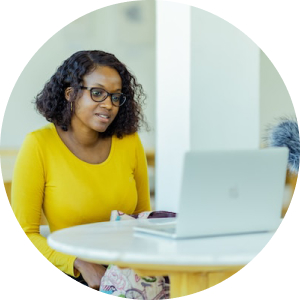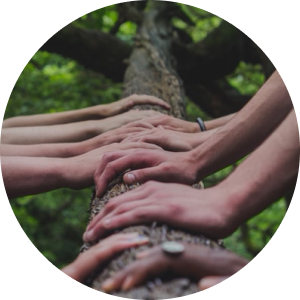Stuck in the Middle with Masking: Playing the Long Game in a Short-Sighted Age
by Sean Mullen, PhD
“Clowns to the left of me, jokers to the right…”
That line plays in my head more often than it should—especially when I’m the only one walking into a conference ballroom, faculty meeting, or classroom wearing an N95. The song is Stuck in the Middle with You, and it wasn’t written for this moment, but it might as well have been.
In the early days of the pandemic, I watched the world split into camps: those doubling down on denial, and those doubling up on precautions. And me? I didn’t quite fit anywhere. I wasn’t always this way. Not a rule follower. Not a germaphobe. Not some sanctimonious voice of moral purity. But now, I’m the masked one in the room—still—and I’m fine with that.
What changed wasn’t me.
It wasn’t my identity either.
What changed was the world around me—the salience of group identities when powerful figures told everyone it was “safe” to take off the masks and pretend the virus had become mild.
My identity as a healthy person had always been there—rooted in avoiding illness and protecting long-term well-being. But as the pandemic dragged on, that identity expanded, engulfing a broader view of what true health meant: seeing the bigger picture, understanding cumulative risk, and recognizing that preserving function over time is the real win.
While the pull of socializing and celebration swept most people I knew into dangerous waters, I found myself drawn deeper into the research—following the mounting evidence of the cumulative, long-term effects of repeated SARS-CoV-2 infection.
I wasn’t changing. I was seeing more clearly than ever.
From Risk-Taker to Pattern Breaker
If you knew me before the pandemic—back in high school, college, or my Brazilian Jiu Jitsu academy—you probably wouldn’t guess I’m the man behind the mask.
I was a risk-taker. The guy who took the difficult path, just to prove it could be done. I trained hard. Worked hard. Played hard. Bourbon-barrel-aged stouts at the brewery, sweaty rolls on the mat, long-haul travel to teach and train. I didn’t shy away from intensity.
But becoming a dad flipped a switch. Not overnight. Not because I was scared. But because the stakes changed.
I started to think less about the moment—and more about the future I wanted to live in. For me. For my kid. For the people I teach and lead.
Health stopped being about performance. It became about sustainability. About protecting something that would allow me to keep showing up in all parts of life — fully present, fully functional — for as long as possible.
Self-Schema, Possible Selves & Pandemic Psychology
In psychology, we talk about self-schema—the way we define ourselves and make decisions based on that internal blueprint. We also talk about possible selves—the imagined versions of who we might become. And self-complexity—how many different identities we hold and how they buffer us from change.
Before the pandemic, I had a rich mix: athlete, academic, weekend warrior, dad, martial artist, extrovert, bourbon aficionado. But over time, the “healthy person” schema moved to the center.
The others didn’t vanish. But they got quieter.
I didn’t want to stop rolling or gym training. But I couldn’t square it with the risk. I couldn’t rationalize communal sweating or gasping through cardio inside a sealed room just to hold onto a prior version of myself. I started adapting. Training at home. Reading the literature. Watching SARS-CoV-2 chew through the immune system, the brain, and the vasculature—and then reading it again, just to be sure.
This wasn’t hype. It was reality. And it called for realignment.
In my professional life, I didn’t stop at masking. I started carting portable air purification devices into my classrooms and labs, keeping my filters fresh and my CO₂ levels monitored. I taught my students to build Corsi-Rosenthal boxes and distributed respirators to those who needed them. I created trivia questions for our health informatics students to challenge their assumptions about air safety and ventilation. I incorporated air quality education into my lectures, showing them why the air we breathe shapes how we think, perform, and stay healthy.
Beyond the classroom, I reached out. I sent emails to my colleagues, my professional organizations, and even broader intellectual communities like Mensa, sharing research on the cognitive, vascular, and neurological impacts of SARS-CoV-2. I cited studies showing persistent brain changes even after mild COVID (Douaud et al., 2022), cognitive declines similar to aging ten years (Hampshire et al., 2024), and vascular remodeling after infection (Kubisiak et al., 2024).
I highlighted consensus reports from nearly 200 international experts documenting Long COVID’s multi-system impacts (Ewing et al., 2025) and studies warning about persistent viral reservoirs in the brain (Stein et al., 2022).
I also raised alarms about workplace research and health behavior studies — how lingering or asymptomatic infection could alter physical and cognitive outcomes, quietly skewing results in our field.
In short: I adapted my work, my teaching, and my outreach.
Not because I changed.
But because reality demanded it.
“Seriously Dude? Still Masking?”
So here I am. Still masking.
And yes, I still hear it:
“Dude, seriously? Still?”
Yup. Still. Because the pandemic didn’t end—it just got rebranded. We’re still dealing with an airborne, immune-damaging virus that doesn’t care if you’re over it. I wear an N95 or better everywhere I go. In the lab. In the classroom. On Zoom calls that turn into in-person meetups. I mask because it aligns with who I am now.
I’m not playing pandemic theater—I’m playing the long game. Mask now, and maybe I can still read, think, move, and retire in peace.
People think masking is about fear. But for me, it’s about identity. It’s about clarity. I’ve read the research. I’ve seen the patterns. And I’d rather be a little uncomfortable in the present than become a cautionary tale in the future.
The comments, the stares, the awkwardness? It doesn’t bother me anymore. I’ve trained for this. I’ve lived a life on the edge of social norms. This is just another arena.
Not Hiding—Revealing
The mask doesn’t hide me. It reveals me.
I’m someone who values health. Who shows up for others by protecting myself. Who reads the science and adapts.
And if I’m stuck in the middle, so be it. I’ve been there before—between risk and caution, rebellion and responsibility, clowns and jokers.
But I’m not confused. I’m committed.
Playing the long game in a short-sighted age isn’t easy. But it’s the only game worth playing.
And yeah—I’ll keep my theme song on loop. But this time, I’m dancing to it with my N95 on, eyes wide open, and a future self I actually want to become still in view.
Bio: Sean P. Mullen, PhD, is an Associate Professor of Health and Kinesiology at the University of Illinois Urbana-Champaign, where he directs the Exercise, Technology, and Cognition (ETC) Laboratory. His research explores cognitive health, behavior change, and technology-driven interventions across the lifespan. During the pandemic, he has focused on promoting clean air, evidence-based precautions, and awareness of SARS-CoV-2’s long-term impacts. He teaches about exercise, air quality, and cognitive science while advocating for safer, healthier learning and research environments. Views expressed are his own and do not necessarily represent those of his employer or affiliated institutions.





